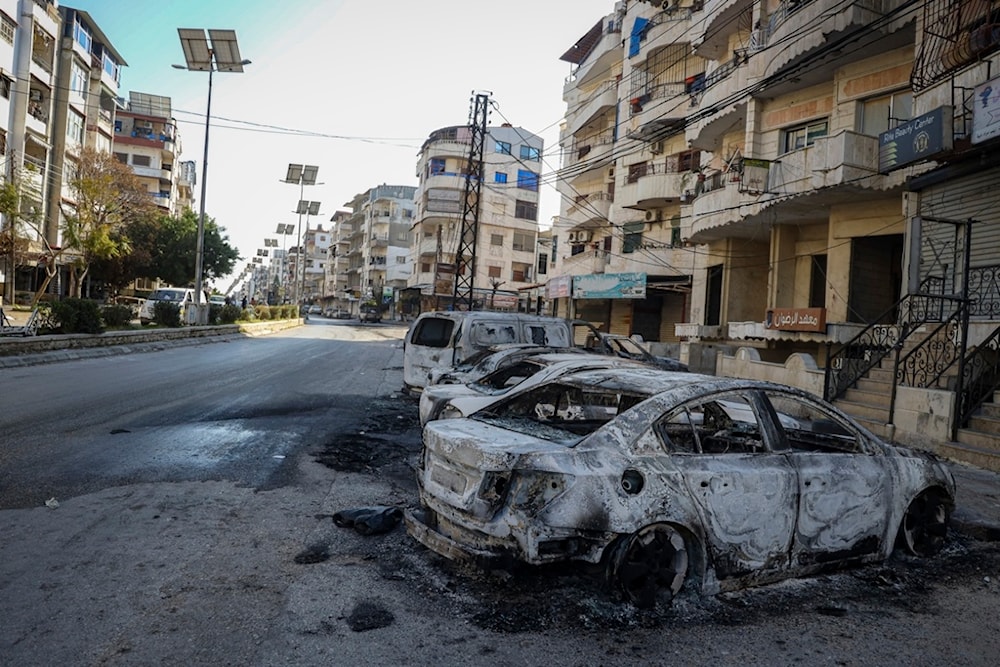Qatar to supply gas to Syria with US approval
Before the ouster of Assad in December, Syria relied on Iranian oil to generate power.
-

Burnt cars remain in the middle of a street following the recent wave of violence between Syrian security forces and gunmen loyal to former President Bashar Assad, as well as subsequent sectarian attacks, in the town of Jableh, Syria's coastal region, Monday, March 10, 2025. (AP Photo/Omar Albam)
Reuters on Thursday reported that Qatar is preparing to supply gas to Syria via Jordan in an effort to improve the country's strained electricity supply, according to three sources familiar with the arrangement. A US official confirmed that Washington had given its approval for the deal.
The move marks a significant shift in Qatar's approach to Syria, as the Gulf state had long been one of the fiercest opponents of former President Bashar al-Assad and a strong supporter of the opposition groups that eventually took power. The agreement would be the most substantial material aid Qatar has provided to the new leadership in Damascus.
A US official stated that the Trump administration had signaled its approval of the gas arrangement, though they did not specify how this was communicated. The endorsement, along with American efforts to encourage dialogue between Kurdish forces in northern Syria and the new administration, suggests that the US remains involved in Syrian affairs, even as it moves more cautiously than some European countries in relaxing sanctions.
According to two sources, the gas will be transported via pipeline from Jordan to the Deir Ali power plant in southern Syria, potentially increasing electricity production by up to 400 megawatts. However, two Jordanian officials said they had no information about a Qatari gas shipment arriving in the coming days, while another source indicated that Qatar may finance the supply.
Neither the US State Department nor Qatar's foreign ministry responded to requests for comment.
Syria's Blackout
Syria has been grappling with severe electricity shortages, with most regions receiving just two to three hours of state-supplied power daily. Beyond the fuel shortage, extensive damage to the power grid has further complicated efforts to restore reliable electricity.
Before the ouster of Assad in December, Syria relied on Iranian oil to generate power. However, those shipments ceased after Islamist group Hayat Tahrir al-Sham forced Assad from power.
The interim administration has outlined plans to increase electricity availability, including importing power from Jordan and deploying floating power stations, though these measures have yet to materialize.
A Western diplomat briefed on the gas deal said Qatar was looking to translate the political support it shares with Gulf states such as Saudi Arabia into concrete assistance. "They are very keen to finally give something, even if it won't make a huge difference," the diplomat said.
Read more: Iraq lacks immediate alternatives to replace Iranian energy imports
Despite Gulf nations' public support for Syria's new administration, direct financial aid has been largely withheld due to concerns over US sanctions. While Washington issued a waiver in January allowing certain transactions, including energy-related deals, it did not eliminate broader restrictions. As a result, entities seeking to engage with Syria continue to seek additional assurances.
Last month, Reuters reported that Qatar had postponed plans to provide financial aid to Syria's new administration workers amid concerns that such transfers could violate US sanctions.

 3 Min Read
3 Min Read










